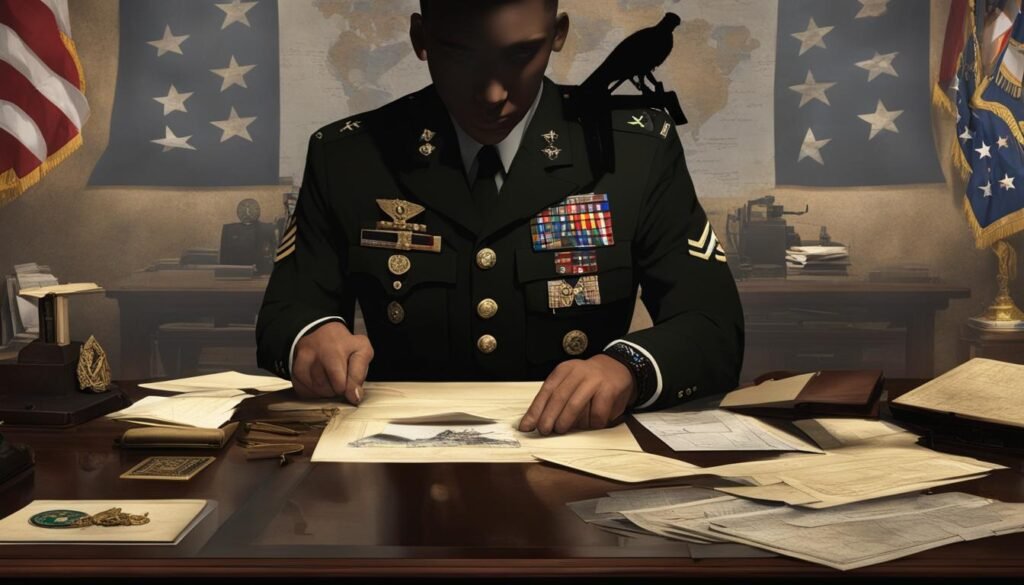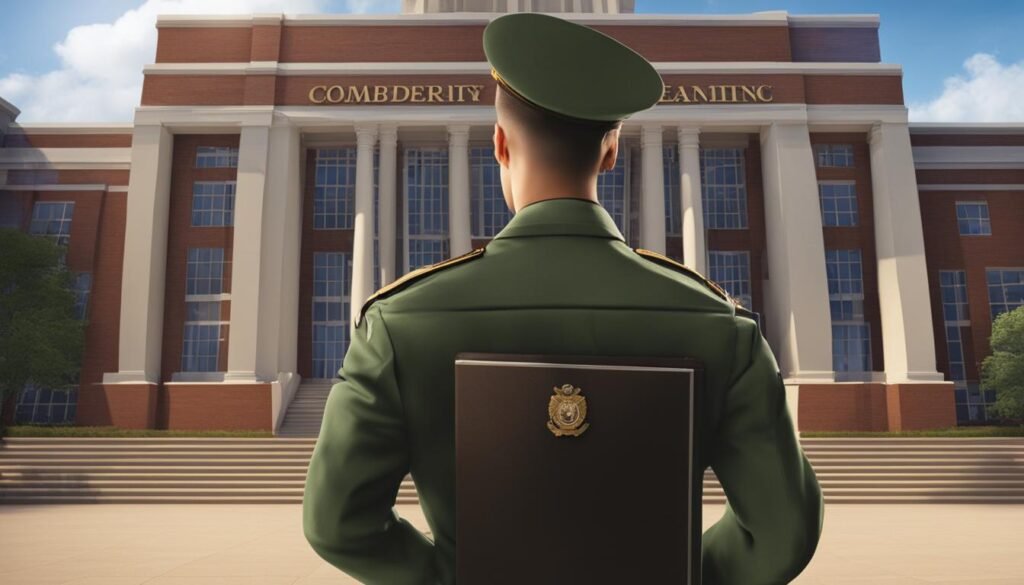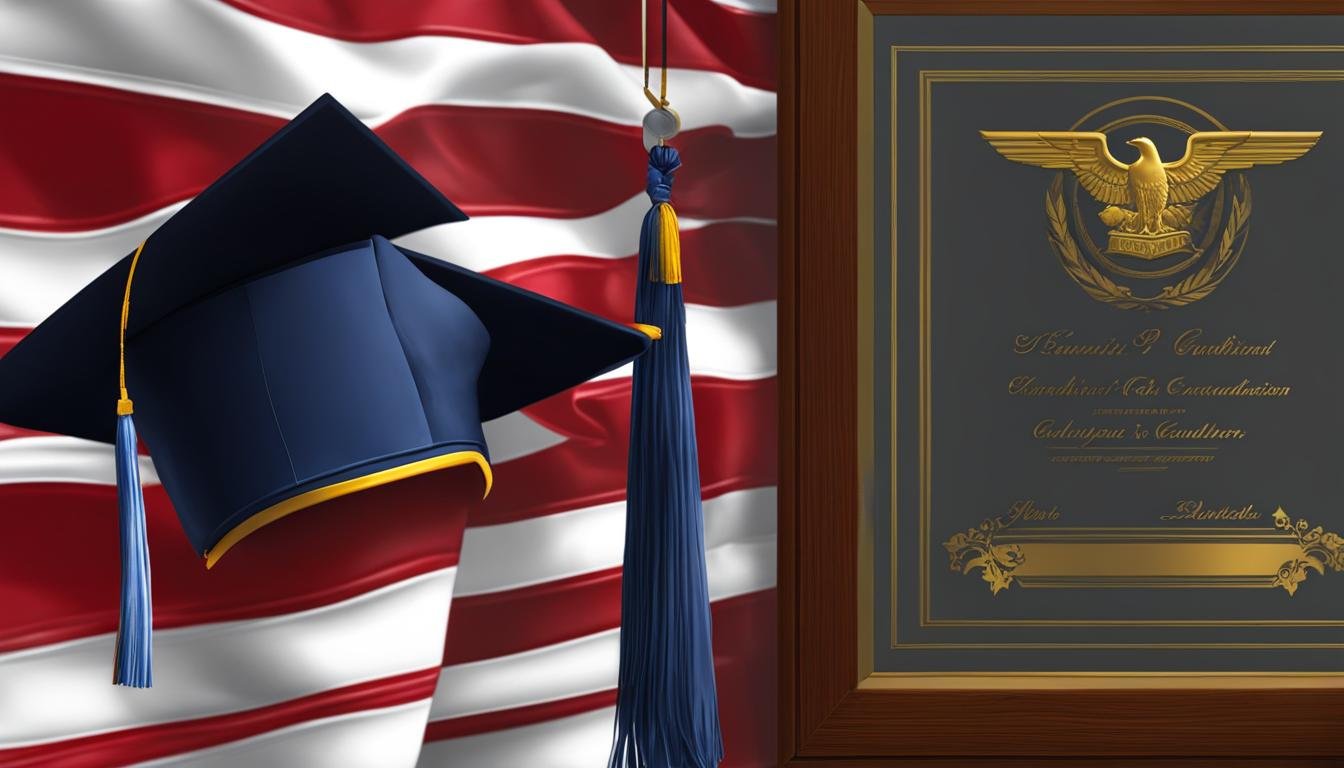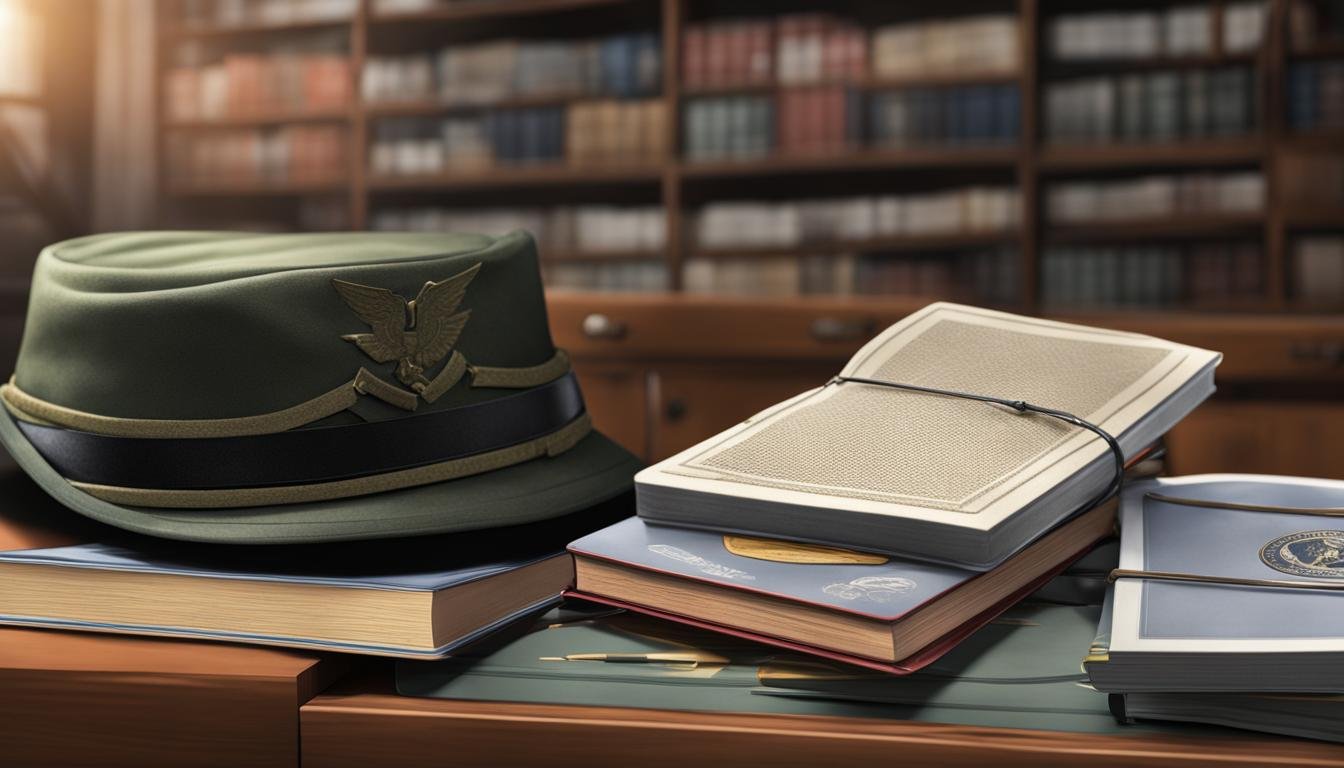The American Council on Education (ACE) collaborates with the Department of Defense (DoD) to review military training and experience and recommend appropriate college credit for members of the Armed Forces. The Joint Services Transcript (JST), which is validated by ACE, is used by the Army, Marine Corps, Navy, and Coast Guard as an academically accepted document to validate a service member’s military occupational experience and training. More than 2,300 colleges and universities recognize the JST and its corresponding ACE credit recommendations as official documentation of military training and experiences.
Key Takeaways:
- Colleges work with ACE and the DoD to assess military training and experience for college credit recognition.
- The Joint Services Transcript (JST) is a widely accepted document for validating military training and experience.
- Over 2,300 colleges and universities recognize the JST and its ACE credit recommendations.
- Military training and experience can help service members save time and money in their educational journey.
- Proper recognition of military training allows for a seamless transition into higher education.
How to Obtain College Credit for Military Training

Service members from all Army components, Coast Guard, Marine Corps, and Navy can obtain their Joint Services Transcript (JST) by visiting the JST website. The JST includes a comprehensive record of military course completions, military occupations, college-level test scores, and other learning experiences.
Colleges and universities may accept, modify, or reject the ACE credit recommendations provided in the JST, depending on their transfer credit policies and degree requirements. To avoid unnecessary duplications of courses, it is recommended that service members have their official transcripts from previous colleges and service branches sent to their new school for evaluation before enrolling in any classes.
By ensuring the evaluation of military training and education, service members can maximize their college credit transfer and reduce the time and cost associated with completing their degree. The evaluation process allows colleges to assess the relevance and equivalency of military training materials, ACE and Community College of the Air Force (CCAF) credit recommendations, and service member documentation.
Having a clear understanding of their military training equivalency with college courses enables service members to streamline their education and focus on areas that require further study or specialization. This recognition of military training and experience not only saves time and money but also provides service members with a sense of validation and progress in their academic pursuits.
Maximizing College Credit for Military Experience

When it comes to maximizing the college credit awarded for military experience, academic institutions have several strategies at their disposal. By assessing the equivalency of military training materials, recognizing third-party program accreditation, and developing or recognizing bridge training programs, colleges can provide multiple pathways for service members to meet credential eligibility requirements.
One approach is for colleges to use available service documentation to evaluate the qualifications of service members and veterans. This can include reviewing the Joint Services Transcript (JST), which provides a comprehensive record of military course completions, military occupations, college-level test scores, and other learning experiences. More than 2,300 colleges and universities recognize the JST and its corresponding ACE credit recommendations, making it a widely accepted document for validating military training and experiences.
In addition to the JST, colleges can accept ACE credit recommendations and recommendations from the Community College of the Air Force (CCAF). These recommendations are based on rigorous evaluations of military training and can provide a valuable starting point for assessing the college credit that should be awarded. However, it’s important to note that colleges have the flexibility to accept, modify, or reject these recommendations based on their transfer credit policies and degree requirements.
“By collaborating with organizations like ACE and evaluating the equivalency of military training, colleges can help service members earn college credit for their military experience, saving them time and money in their educational journey,” says Jane Smith, Director of Admissions at ABC University.
Table: Examples of College Credit Options for Military Experience
| Method | Credit Option | Description |
|---|---|---|
| ACE Credit Recommendations | Transfer Credit | Colleges accept ACE credit recommendations for specific military courses, occupations, and exams, granting transfer credit accordingly. |
| Community College of the Air Force (CCAF) | Associate Degree | Service members who complete a CCAF program can earn an associate degree that is recognized by many colleges and universities. |
| Third-Party Program Accreditation | Credential Recognition | Colleges recognize third-party program accreditation, such as professional certifications obtained during military service, and award college credit accordingly. |
| Bridge Training Programs | Academic Pathways | Colleges develop or recognize bridge training programs that provide a pathway for military-trained applicants to meet the requirements for specific academic programs. |
By employing these various methods, colleges can help service members and veterans transition smoothly into higher education and pursue their academic goals. Through proper evaluation and recognition of military training and experience, colleges can ensure that the credit awarded aligns with the knowledge and skills gained during military service, ultimately supporting the educational and career advancement of those who have served our country.
How Can Military Training and Experience Benefit Admission and Recognition in College Programs?
Military training recognition in college can open doors to various programs and opportunities. The discipline, leadership, and practical skills gained in the military can make an applicant stand out and excel in a college environment. Many institutions value the unique perspective and experience that veterans bring to their campus.
Do Colleges Consider Military Training for Credit Transfer?
Yes, many colleges consider credit transfer for military training. They understand the value of the skills learned in service and often offer credit for relevant training. It’s a great way for veterans to accelerate their degree completion and transition back to civilian life.
Conclusion
Recognizing and valuing military training and experience is crucial for service members and veterans transitioning to the civilian workforce. By collaborating with organizations like ACE and evaluating the equivalency of military training, colleges can help service members transfer their military training to college credits, ultimately saving them time and money in their educational journey.
Obtaining college credit for military training is possible through the Joint Services Transcript (JST), which serves as an academically accepted document validated by ACE. More than 2,300 colleges and universities recognize the JST and its corresponding ACE credit recommendations, making it an official documentation of military training and experiences. It is recommended that service members have their official transcripts and previous college records evaluated before enrolling in any classes to avoid duplication of courses.
Maximizing college credit for military experience is achievable through various pathways. Academic institutions can assess the equivalency of military training materials, accept ACE and Community College of the Air Force (CCAF) credit recommendations, and utilize available service documentation to evaluate the qualifications of service members and veterans. By providing flexible options and recognizing third-party program accreditation, colleges can ensure that military-trained applicants receive the credit they deserve.
By transferring military training to college credits, service members can seamlessly transition into higher education and pursue their academic goals. The recognition of military training and experience not only honors their service but also empowers them in their civilian endeavors. Through collaboration, evaluation, and recognition, colleges can support the educational aspirations of service members and veterans, helping them succeed in both military and civilian life.



